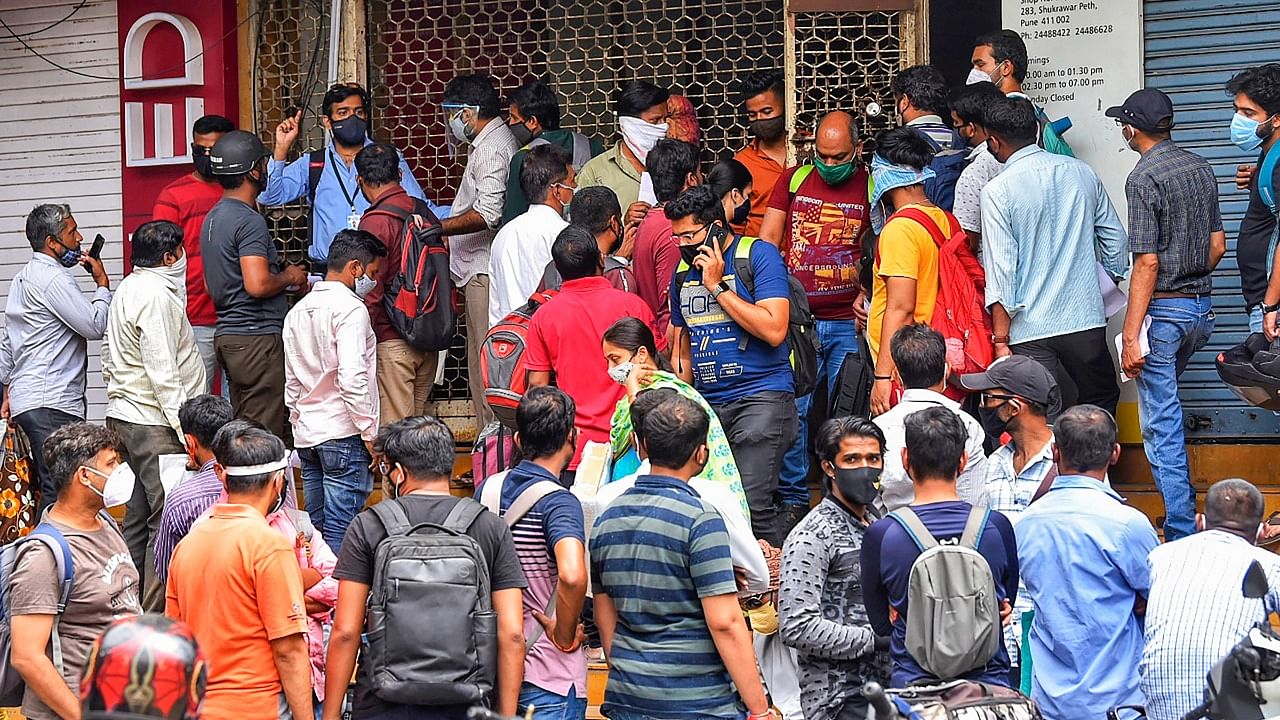
India logged over two lakh new Covid-19 cases on Thursday, as many hospitals treating coronavirus patients continue to report severe shortages of beds, with people being treated in wheelchairs.
Amid the unprecedented second wave, the sudden spike in demand for Remdesivir injections and fear of shortage in supply of Covid-19 vaccines has added to the stressful condition across the country. Experts have pointed out other reasons including a halt in production of injections apart from the alarming spike in everyday cases, that may have led to the shortage in supply.
Meanwhile, in its efforts, the government recently gave the approval to enhance the production of Remdesivir to around 78 lakh vials per month from the earlier 38.80 lakh vials. Over the reported shortage of vaccines, it has said that it is an issue of planning and not supply.
Let us take a look at what could have led to the sudden shortage in vaccines and the Remdesivir injections:
Halt in production of Remdesivir
There was a scaling down or stoppage of production of the Remdesivir drug in January and February due to the low Covid-19 caseload.
As Remdesivir has a short shelf-life of six-eight months, manufacturers didn't take the risk of "being saddled with huge inventories," pharma industry experts told The Times of India. He further pointed out that the unprecedented second wave of the pandemic also was a reason for a 'mismatch' in the production and demand curve.
India on April 11 banned the export of anti-viral drug Remdesivir and its active pharmaceutical ingredients as demand rocketed due to a record surge in Covid-19 infections, leading to shortages in many parts of the country.
Several companies in India, such as Dr Reddy's and Zydus Cadila among others have been granted permission by the DCGI to manufacture and market Remdesivir for "restricted emergency use" on hospitalised Covid-19 patients. The drug is administered in the form of an injection.
'No shortage of vaccines'
Even as the Opposition has attacked the government over the export of vaccines when it is in "acute shortage in the country and when there is no vaccine for Indians", the Centre has rubbished the claims and has maintained that there is no "shortage of vaccines".
However, multiple vaccination centres in Maharashtra, Andhra Pradesh and Odisha have complained of a shortage in supply of Covid-19 vaccines and remained shut as the states rationed their supply of vaccines amid a surge in Covid-19 cases.
Many vaccination centres in Mumbai reported halting their vaccination processes as they ran out of doses.
“The vaccine shortage is due to poor logistics planning and coordination. If a software platform was built to forecast demand through pre-registration, then there should be no reason for a shortage. Yes, opening up the vaccination to all above 45 years may have some increase in demand but there has not been a population explosion overnight,” a community health specialist told DH.
Meanwhile, the Centre on April 13 said that over 1.67 crore Covid-19 vaccine doses are still available with states and UTs, underlining that the problem is not of vaccine shortage but of better planning.
“No one expected there would be such a surge in the Covid-19 cases as being witnessed. The vaccination strategy was designed assuming that there was reasonable herd immunity as per the series of serosurveys. But most of the assumptions that formed the basis of the vaccine delivery strategy no longer hold good,” explained Oommen John, a senior public health researcher from the George Institute for Global Health, Delhi.
Currently, two vaccines -- Covaxin by Bharat Biotech and Oxford-AstraZeneca Covishield manufactured by Serum Institute of India (SII) -- are being used for inoculation in India. India's drug regulator has also recently granted permission for the restricted emergency use of the Russian Covid-19 vaccine Sputnik V with certain conditions.
India reported a maximum of over two lakh cases and 1,027 deaths due to Covid-19 on Thursday and now has the second-highest number of infections after the United States.
(With agency inputs)